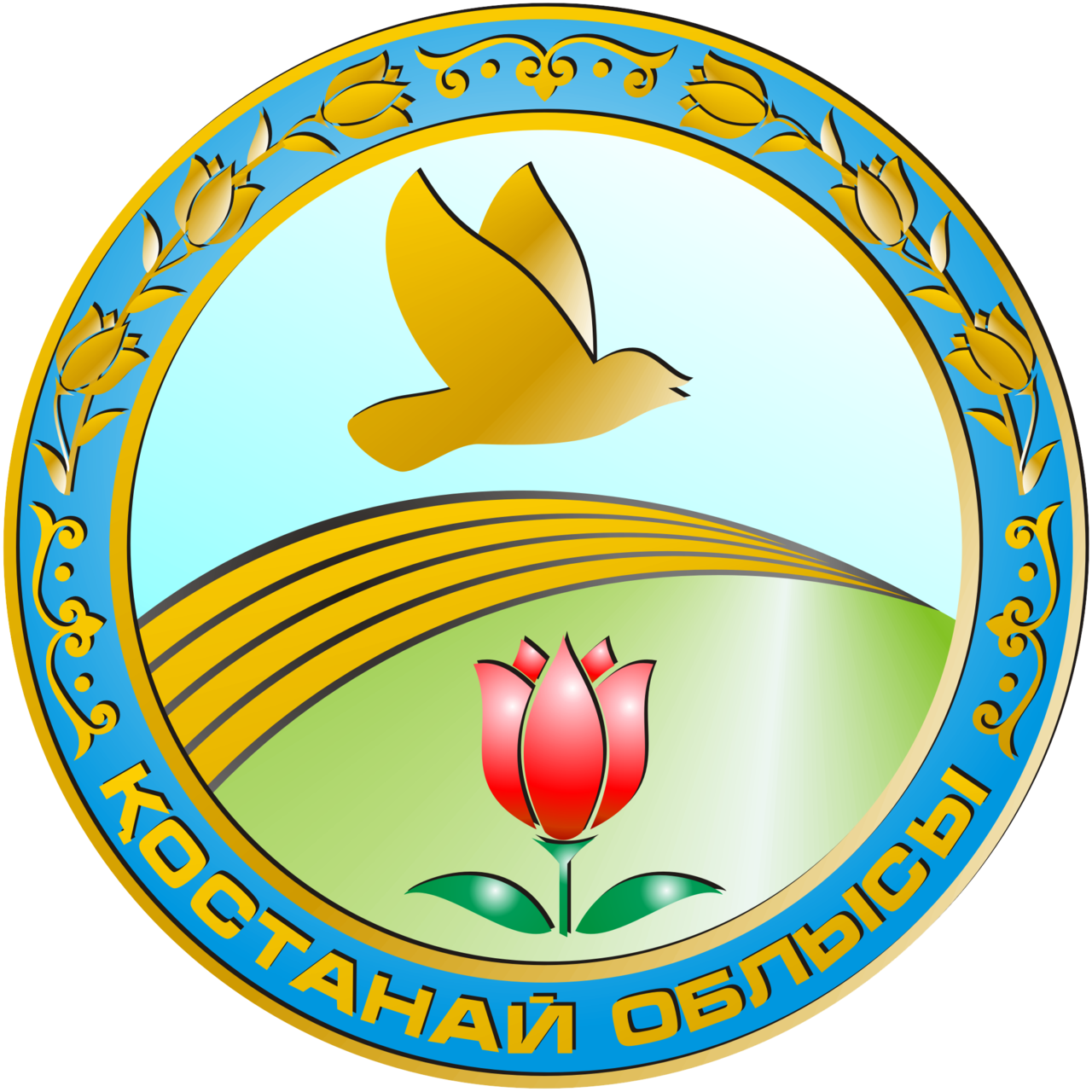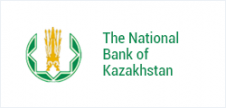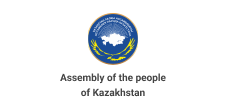Doing a Business

Obtaining a license
In accordance with the legislation of the Republic of Kazakhstan, in relation to certain types of activities and actions (operations), a permissive or notification procedure is established, i.e. certain activities require a permit or notification. According to the Law of the Republic of Kazakhstan "On Permits and Notifications", a permitting or notification procedure is introduced depending on the level of danger of activities or actions (operations) to be carried out and is divided into the following levels:
- permits of the first category - licenses that are introduced in relation to types (subtypes) of activities or actions (operations) associated with a high level of danger;
- permits of the second category - all permits, which are not licenses, which are introduced in relation to types (subtypes) of activities or actions (operations) associated with an average level of danger;
- notifications are introduced for activities or activities associated with a low level of hazard, but requiring government agencies to receive information about the beginning or termination of such activities or activities.
The hazard levels of the activity or actions (operations) are established based on the analysis of the regulatory impact.
For the beginning and subsequent implementation of certain types of activities or actions (operations), individuals and legal entities must have a valid permit or send a notification to the state bodies that receive notifications in the manner prescribed by law. The implementation by individuals and legal entities of activities or actions (operations), for which the legislation has established a permitting or notification procedure, without obtaining the appropriate permission or without sending the appropriate notification is not allowed.
On January 1, 2021, the Law on Permits and Notifications was amended on the basis of the Law on Economic Growth Recovery. The amendments made it possible to obtain a license for the provision of financial services by a branch of a foreign legal entity.
In accordance with the law "On Permits and Notifications", a license is a permit of the first category issued by a licensor to an individual or legal entity, as well as to a branch of a foreign legal entity, the subject of which is the provision of financial services, to carry out a licensed type of activity or a subtype of a licensed type of activity related with a high level of danger.

Permissions
The issuance of permits is carried out on an equal basis and on equal terms for all persons who meet the qualification or permitting requirements.
Permission classes
Depending on the objects of regulation, permits are divided into the following classes:
1) class 1 - permits issued for activities;
2) class 2 - permits issued for objects;
3) class 3 - one-time permits;
4) class 4 - permits issued for activities with limited resources or using quotas;
5) class 5 - permits issued for professional activities to individuals;
6) class 6 - product permits.
License means a permit of the first category issued by the licensor to an individual or legal entity, as well as to a branch of a foreign legal entity, the subject of which is the provision of financial services, to carry out a licensed type of activity or a subtype of a licensed type of activity associated with a high level of danger.
Certain types of activities or actions (operations) in the following areas are subject to licensing:
1) television and radio broadcasting;
2) protection and use of objects of historical and cultural heritage;
3) education;
4) architecture, urban planning and construction;
5) hydrocarbons;
6) industry;
7) informatization and communication;
8) circulation of narcotic drugs, psychotropic substances, precursors;
9) health care;
10) the use of atomic energy;
11) ensuring information security;
12) special technical means intended for carrying out operational-search measures;
13) circulation of weapons, military equipment and certain types of weapons, explosives and products with their use;
14) circulation of toxic substances;
15) manufacturing of state symbols of the Republic of Kazakhstan;
16) production and circulation of ethyl alcohol and alcoholic beverages, production of tobacco products;
17) commodity exchanges;
18) export and import;
19) the financial sector and activities related to the concentration of financial resources;
20) the use of outer space;
21) gambling business;
22) veterinary medicine;
23) agriculture;
24) transport;
25) forensic expertise, including forensic medical, forensic narcological and forensic psychiatric examinations;
26) services for individuals and legal entities.
27) digital assets
Peculiarities of submission of documents for issuance of a permit and (or) annex to it by foreign legal entities
Foreign legal entities pay fees or fees charged in the implementation of licensing or licensing procedures on their own, provided they receive their own business identification number or through branches and (or) representative offices of these legal entities registered in the Republic of Kazakhstan, subject to the authority of the heads of branches and (or) representative offices and using the details and business identification numbers of such branches and (or) representative offices.
A complete list of activities subject to licensing and the amount of license fees, as well as a list of second category permits and a list of notifications are specified in the Law “On Permits and Notifications”.

License and Notice Form
Licensing and sending notifications are carried out in electronic form using the state information system of permits and notifications and the state electronic register of permits and notifications.
Licensing procedures are carried out in electronic form using the state information system of permits and notifications and the state electronic register of permits and notifications, taking into account the provisions of paragraph 3 of Article 52 of the Law "On Permits and Notifications".
Permits issued in electronic form are equivalent to paper permits.
The licensing authorities are obliged to include in the state electronic register of permits and notifications information on the licensing procedures carried out in paper form simultaneously with the implementation of the licensing procedure.
To obtain a permit through the State Corporation, the applicant has the right to apply to the State Corporation regardless of its location, with the exception of permits in the financial sector and for activities related to the concentration of financial resources.
If the applicant applies for the permitting procedure through the State Corporation, the employee of the State Corporation certifies an electronic application or other similar document with his electronic digital signature issued for use for official purposes. Such certification is carried out on the basis of the written consent of the applicant.
If the applicant applies for a permit and (or) an annex to a permit on paper, the permit and (or) annex to the permit are issued in electronic form, printed and certified with the seal of the permitting authority and the signature of the head of the permitting authority.
A permit and (or) annex to a permit shall be issued on paper if it is not possible to issue a permit and (or) an annex to a permit in electronic form.
In the case of submitting an application in electronic form through the state information system of permits and notifications, the registration of the application by the licensor and the body authorized to issue a permit of the second category is carried out within one working day.

Issuance of a license
Licenses are issued at the location of the licensor.
If the licensors are local executive bodies or territorial bodies of the central state body, the license and (or) annex to the license are issued:
1) at the place of registration of an individual or legal entity or a branch or representative office of a foreign legal entity, with the exception of licenses issued under the class "permits issued for objects", which are issued at the place of their activity;
2) a foreign legal entity that does not have a branch or representative office on the territory of the Republic of Kazakhstan, at the place of its activities, except for cases when the legislation of the Republic of Kazakhstan provides otherwise.
3. To obtain a license and (or) an annex to a license, the applicant shall submit the following documents:
1) application;
2) for legal entities carrying out activities in the financial sector and activities related to the concentration of financial resources, as well as activities related to the circulation of civilian and service weapons and ammunition for them, activities related to the circulation of narcotic drugs, psychotropic substances, precursors, activities related to the implementation of security activities - a copy of the charter (notarized if the originals were not submitted for verification);
3) certificate of state registration (re-registration) of the legal entity of the applicant - for a legal entity;
4) a copy of an identity document - for an individual;
5) a copy of the document confirming the payment of the license fee for the right to engage in certain types of activities, except for cases of payment through the payment gateway of "electronic government";
6) documents confirming the applicant's compliance with the qualification requirements in the cases and in the manner established by the legislation of the Republic of Kazakhstan.
On the e-government portal, 87 government services in the field of licensing are available in electronic format (https://egov.kz/cms/en/categories/licensing).

The state body in the field of technical regulation is the Committee for Technical Regulation and Metrology (CTRM) of the Ministry of Trade and Integration of the Republic of Kazakhstan.
New Law of the Republic of Kazakhstan "On technical regulation" dated December 30, 2020 No. 396-VI ЗРК ( entered into force on July 1, 2021) regulates public relations arising from the establishment and implementation of mandatory requirements for products, including buildings and structures related to the requirements for products, processes of design (including survey), production, construction, installation, commissioning, operation, storage, transportation, sale and disposal, voluntary application of requirements for products, processes and services, conformity assessment and state control and supervision in the field of technical regulation, and also establishes the legal framework for the state system of technical regulation.
RSE "Kazakhstan Institute of Standardization and Certification" in accordance with the Law of the Republic of Kazakhstan dated October 5, 2018 " On standardization "is a national standardization body that implements state policy in the field of standardization and coordinates work on standardization and creation of conditions for the adoption of standards on the basis of consensus of all stakeholders.
The standards are applied on a voluntary basis and are developed by the business community, government agencies, technical committees for standardization.
Mandatory requirements for products are established in technical regulations, and methods and methods of production in standards.
National standards are approved by the KTRM. National standards are mandatory if the regulatory legal acts of the Republic of Kazakhstan contain instructions on this.
In order to meet the requirements of technical regulations, a list of standards is approved, as a result of which, on a voluntary basis, compliance with the requirements of technical regulations is ensured.
The rules for the accounting and application of international standards, standards of foreign states on the territory of the Republic of Kazakhstan were approved by Order of the Minister for Investment and Development of the Republic of Kazakhstan dated December 12, 2018 No. 870.

Obtaining a document on conformity assessment
Confirmation of the conformity of products and processes on the territory of the Republic of Kazakhstan is mandatory or voluntary.
For the import and sale of products subject to mandatory confirmation of conformity, it is required to undergo conformity confirmation procedures and obtain a certificate of conformity or a declaration of conformity.
Products subject to mandatory confirmation of conformity are determined by technical regulations.
Conformity assessment rules, including the procedure for certification of products, services, processes, the procedure for registering a declaration of conformity, forms of documents on conformity assessment, the procedure for their execution, approved by the Order of the acting Minister of Trade and Integration of the Republic of Kazakhstan dated June 29, 2021 No. 433-NK.
To obtain a certificate of conformity / declaration of conformity, you must contact one of the conformity assessment bodies (OTC) registered in the register of accreditation entities of the Republic of Kazakhstan and in the field of accreditation of which there are one or another product. The register is posted on the official website of the National Accreditation Body of the Republic of Kazakhstan
The general safety declaration is also included in the conformity assessment documents. A declaration of general product safety is drawn up in relation to products that are not included in the Unified List of Products, in respect of which mandatory requirements are established within the framework of the Customs Union, approved by the decision of the Customs Union Commission (hereinafter - the Unified List), as well as products included in the Unified List, but in respect of which technical regulations have not been adopted or enacted.
Voluntary confirmation of the conformity of products, services, processes that are not subject to the requirements established by technical regulations is carried out at the initiative and requirements of the applicant and is carried out by an OPS on a contractual basis. Voluntary confirmation of compliance is carried out in the form of voluntary certification. Requirements for the procedure for conducting the procedure for voluntary confirmation of conformity and the assignment of conformity marks are established by national standards.

Confirmation of the conformity of products for which the technical regulations of the Eurasian Economic Union (TR EAEU) have come into force.
To release products into circulation, it is necessary to go through the conformity assessment procedures established by the EAEU TR (section "Evaluation (confirmation) of conformity").
The list of EAEU TRs is posted on the website of the Eurasian Economic Commission (EEC)
Uniform rules for registration of declarations of conformity were approved by the decision of the EEC Board dated March 20, 2018 No. 41.
To obtain a certificate of conformity / declaration of conformity, you must contact one of the OPS included in the Unified Register of OPS and IL of the Union, in the field of accreditation of which there is one or another product. Information can be obtained on the website www.nca.kz or www.eurasiancommission.org
Foreign and international organizations issuing documents in the field of confirmation of conformity of a foreign sample are entitled to carry out activities in the territory of the Republic of Kazakhstan with the notification of the authorized body on the commencement of activities in the manner established by The Law of the Republic of Kazakhstan" On Permits and Notifications ".
Mandatory confirmation of compliance is carried out in the following forms:
1) acceptance by the manufacturer (executor) of the declaration of conformity;
2) compulsory certification.

The activities of insurance companies are regulated by the Law of the Republic of Kazakhstan "On insurance activities" dated December 18, 2000 No. 126.
The activities of insurance companies are regulated by the Law of the Republic of Kazakhstan "On insurance activities" dated December 18, 2000 No. 126.
The National Bank of Kazakhstan is a state body that ensures the development and implementation of the state's monetary policy, the functioning of payment systems, contributing to the stability of the financial system, carrying out currency regulation and currency control, statistical activities, as well as, within its competence, state regulation, control and supervision over financial market, financial organizations and other persons and in the field of financial legislation of the Republic of Kazakhstan.

Top 10 largest insurance companies in Kazakhstan, billion tenge
|
Insurance company |
Assets |
personal capital |
Insurance premiums |
|
Eurasia Insurance Company JSC |
347.8 |
209.0 |
79.3 |
|
Nomad Life CSR JSC |
222.1 |
28.1 |
54.3 |
|
Halyk-Life Life Insurance House Halyk Bank House of Culture JSC |
210.4 |
43.4 |
59.3 |
|
Halyk Insurance Company, a subsidiary of Halyk Bank of Kazakhstan JSC |
149.5 |
59.2 |
68.8 |
|
KazakhExport Export Insurance Company JSC |
130.6 |
114.3 |
2.0 |
|
Insurance Company "Victoria" |
99.8 |
92.5 |
1.7 |
|
Freedom Finance Life CSR JSC |
64.1 |
9.8 |
13.2 |
|
JSC "Standard life" CSR " |
45.6 |
5.2 |
14.2 |
|
Eurasia CSR JSC |
44.2 |
12.9 |
15.9 |
|
IC "Kazakhmys" JSC |
39.0 |
13.4 |
19.3 |
* 07/01/2021 w

Ratio of insurance payments to insurance premiums, KZT bln


Macroeconomic indicators of the insurance sector
|
|
01.07.2020 |
01.01.2021 |
01.07.2021 |
|
GDP, billion tenge |
71 445,1 |
70 714,1 |
71 419,0 |
|
Assets to GDP ratio,% |
1,93% |
2,10% |
2,34% |
|
Equity to GDP ratio, % |
0,86% |
0,94% |
0,98% |
|
Ratio of insurance premiums to GDP, % |
0,67% |
0,72% |
0,88% |
|
The ratio of insurance premiums per capita, in tenge |
25 866 |
27 082 |
32 995 |
* as of 01.07.2021
Source: Agency of the Republic of Kazakhstan for Regulation and Development of the Financial Market
Export insurance company "KazakhExport"
JSC "Export Insurance Company "KazakhExport" - a subsidiary of JSC "National Managing Holding "Baiterek" - is the only specialized insurance organization that performs the functions of an export credit agency of the Republic of Kazakhstan.
KazakhExport was established by the Resolution of the Government of the Republic of Kazakhstan dated May 12, 2003 No. 442 as one of the new development institutions, whose mission is to support the growth of exports of non-primary goods, works, services in priority sectors of the economy and the formation of the practice of financial, insurance and non-financial support of Kazakhstani enterprises.
Functions:
- assistance in promoting goods, works and services of the Republic of Kazakhstan to foreign markets;
- free consulting support in the field of pre-export and export operations;
- interaction with domestic, foreign and international organizations on the promotion of the export of goods, works and services and the Republic of Kazakhstan.

Investment Ombudsman
The investment ombudsman is an official appointed (determined) by the Government of the Republic of Kazakhstan, who is entrusted with the functions of assisting in the protection of the rights and legitimate interests of investors.
In accordance with the Decree of the Government of the Republic of Kazakhstan dated April 20, 2019 No. 216, the Prime Minister of the Republic of Kazakhstan was appointed as the investment ombudsman.
The legal status of the Investment Ombudsman is enshrined in Art. 314–317 of the Entrepreneurial Code of the Republic of Kazakhstan, activities are ensured by the authorized investment body.
The activities of the Investment Ombudsman are regulated by Decree of the Government of the Republic of Kazakhstan dated December 26, 2015 No. 1069.
The main functions of the investment ombudsman:
- consideration of appeals from investors on issues arising during the implementation of investment activities in the Republic of Kazakhstan, and making recommendations for their resolution, including interaction with government agencies;
- providing assistance to investors in resolving emerging issues out of court and pre-trial;
- development and submission to the Government of the Republic of Kazakhstan of recommendations on improving the legislation of the Republic of Kazakhstan on investment activities.

Business Ombudsman
The Commissioner for the Protection of the Rights of Entrepreneurs of Kazakhstan (Business Ombudsman) is appointed to the position by order of the President of the Republic of Kazakhstan for a period of four years and is accountable only to the President.
February 24, 2020 By order of the Head of State, Rustam Manarbekovich Zhursunov was appointed Commissioner for the Protection of the Rights of Entrepreneurs of Kazakhstan.
The legal status of the Commissioner for the Protection of the Rights of Entrepreneurs of Kazakhstan is determined by articles 307-313 of the Entrepreneurial Code of the Republic of Kazakhstan.
The main functions of the Business Ombudsman include representing, ensuring, protecting the rights and legitimate interests of entrepreneurs, considering their appeals, making recommendations to government bodies on the suspension of subordinate regulatory legal acts, sending petitions to the prosecutor's office in case of disagreement with the opinion of government bodies for the purpose of further restoration violated rights of entrepreneurs, filing a claim (application) in court in the manner established by the legislation of the Republic of Kazakhstan, etc.
Also, if violations of the rights of entrepreneurs are systemic in nature and the problems cannot be solved at the level of state bodies, the Commissioner for the Protection of the Rights of Entrepreneurs has the right to submit appeals to the President of the Republic of Kazakhstan for consideration.
The activities of the Commissioner for the Protection of the Rights of Entrepreneurs of Kazakhstan are carried out by the National Chamber of Entrepreneurs of the Republic of Kazakhstan “Atameken”.

The role of NPP RK "Atameken" in protecting the rights and interests of the business community
To consider complaints from entrepreneurs, the Department of Legal Protection of Entrepreneurs operates within the structure of the NCE. All Regional Chambers of Entrepreneurs have similar units - departments for the legal protection of entrepreneurs, staffed by legal experts.
The department is a key unit in the structure of the NCE on issues of protecting the rights and legitimate interests of business entities and is part of the apparatus of the Commissioner for the Protection of the Rights of Entrepreneurs of Kazakhstan.
The department is the secretariat of the Council for the Protection of Entrepreneurs' Rights and Anti-Corruption, which considers systemic business problems and, based on the results of its meetings, sends recommendations to central government bodies.
Among the methods of work of the Council and the Department, interaction with the Prosecutor General’s Office, as well as the Anti-Corruption Agency, is important. Also, experts from the Department provide legal assistance to entrepreneurs, including assistance in drawing up statements of claim (reviews).
The Atameken Arbitration Center was created in 2014 in the form of a non-profit organization - a private institution for the consideration of disputes between organizations of all forms of ownership in order to help businessmen resolve disputes quickly and without damaging their reputation, while significantly saving on legal costs (the state fee for legal entities is 3% of the claim amount, in the arbitration center - 2%).
The Arbitration Center maintains a register of arbitrators, from which the parties can independently select an arbitrator to resolve their dispute. The parties also have the opportunity to choose any other specialist who can act as an arbitrator.
The regulations of the Atameken Arbitration Center provide for the simplest possible procedure for resolving a dispute. For example, the meeting may be held via video conferencing. At the same time, on most issues the parties themselves can determine the procedure for resolving the dispute. Moreover, due to less formalism when considering a dispute, the disputing party can independently defend its arguments, excluding the costs of a representative or lawyer.
The arbitration decision comes into force from the moment it is made and is mandatory. Enforcement of an arbitration award outside of Kazakhstan is effectively ensured by the New York Convention on the Recognition and Enforcement of Foreign Arbitral Awards, to which 168 countries are parties.
The parties to disputes that were resolved at the Arbitration Center are Kazakh companies, as well as companies from Belarus, Spain, China, Latvia, Moldova, Poland, Russia, the USA, and Uzbekistan.

Mediation
Mediation is an out-of-court method of resolving disputes, chosen by the parties on a voluntary basis, to achieve certain goals. The Law of the Republic of Kazakhstan “On Mediation” dated January 28, 2011 (https://adilet.zan.kz/eng/archive/docs/Z1100000401/20.12.2021) is designed to ensure the settlement of public relations, contains rules defining general provisions that enshrine:
legal status of mediators and organizations providing mediation;
procedure for mediation.
Mediation is based on the following principles: voluntariness, confidentiality, equality of the parties, independence and impartiality of the mediator, as well as the inadmissibility of interference in the procedure.
Mediation is carried out by mutual agreement of the parties and upon the conclusion of a mediation agreement between them.
The mediation procedure for disputes (conflicts) involving individuals and (or) legal entities, when one of the parties is a government agency, is applied in cases provided for by the laws of the Republic of Kazakhstan.
The mediation procedure is not applied in criminal cases of corruption crimes and other crimes against the interests of the civil service and public administration.
If during mediation a settlement of the dispute is reached between the parties, a written agreement is drawn up and signed by the parties.
An agreement to resolve a dispute (conflict) is subject to execution by the parties to mediation voluntarily in the manner and within the time limits provided for by this agreement.

Specialized Interdistrict Administrative Court of Astana and Specialized Interdistrict Economic Court of Astana
From July 1, 2021, in accordance with paragraph 3 of Article 102 of the Administrative Procedural Code of the Republic of Kazakhstan dated June 29, 2020 No. 350-VI (APC), the specialized interdistrict administrative court of Astana is considering claims of investors specified in parts 1-2 of the article 27 of the Civil Procedure Code of the Republic of Kazakhstan (Civil Procedure Code), on appealing administrative acts, administrative actions (inaction) of administrative bodies and officials.
From July 1, 2021, in accordance with paragraphs 1-2 of Article 27 of the Code of Civil Procedure, the specialized interdistrict economic court of Astana considers civil cases on investment disputes, except for cases within the jurisdiction of the specialized interdistrict administrative court of Astana, as well as claims of state bodies against investors related to investment activities of the investor, with the participation of:
1) a foreign legal entity (its branch, representative office) carrying out business activities on the territory of the Republic of Kazakhstan;
2) a legal entity created with foreign participation in the manner established by the legislation of the Republic of Kazakhstan, fifty or more percent of voting shares (stakes in the authorized capital) of which belong to a foreign investor;
3) investors if there is a concluded contract with the state for investment.
In accordance with the Law of the Republic of Kazakhstan dated June 29, 2020 No. 351-VI “On introducing amendments and additions to some legislative acts of the Republic of Kazakhstan on issues of administrative procedural legislation of the Republic of Kazakhstan,” Article 28 of the Civil Procedure Code, according to which the investment panel of the Supreme Court The Republic of Kazakhstan considered disputes of large investors as the first instance. Now all disputes under investment contracts and other agreements between the state and the investor will be considered in the administrative court, if it concerns actions, inactions, administrative acts and actions.
Other disputes arising from legal relations with the participation of an investor, not related to investment activities, as well as disputes with the participation of an investor that are subject to consideration in simplified proceedings, are subject to the jurisdiction of district (city) and equivalent courts in accordance with the jurisdiction established by Chapter 3 of the Code of Civil Procedure.
Judicial collegiums for administrative cases have been established in the Supreme Court and regional courts. By Decree of the President of the Republic of Kazakhstan dated January 31, 2022 No. 799, Aslan Sultanovich Tukiev was appointed Chairman of the Judicial Collegium for Administrative Cases of the Supreme Court of the Republic of Kazakhstan.
By Decree of the President of the Republic of Kazakhstan dated January 26, 2021 No. 500, specialized interdistrict administrative courts were created.

Arbitration
The main provisions regarding the consideration of cases in arbitration courts in relation to disputes arising from civil relations involving individuals and (or) legal entities, regardless of the place of residence or location of the subjects of the dispute within the state or outside it, are regulated by the Law of the Republic of Kazakhstan dated April 8, 2016 “On Arbitration” (hereinafter referred to as the Law) (https://adilet.zan.kz/eng/docs/Z1600000488.
According to the Law, arbitration is understood as arbitration established specifically for the consideration of a specific dispute, or permanent arbitration.
Today, in the Republic of Kazakhstan, according to the Arbitration Chamber of Kazakhstan, there are 17 permanent arbitrations [electronic resource]/URL: https://palata.org/registry/ (date of access: 04/07/2023).
According to the Law, the following disputes are not considered by arbitration:
- which affect the interests of minors, persons recognized in the manner prescribed by law as incompetent or partially capable;
- on rehabilitation and bankruptcy;
- between subjects of natural monopolies and their consumers;
- between government bodies and quasi-public sector entities.
- arising from personal non-property relations not related to property ones;
- in the absence of the consent of the authorized body to conclude an arbitration agreement with state-owned enterprises, as well as legal entities, fifty or more percent of voting shares (stakes in the authorized capital) of which directly or indirectly belong to the state;
An arbitration agreement in relation to a dispute that is pending in court may be concluded before the decision on the dispute is made by the said court. In this case, the court issues a ruling to leave the application without consideration.
The arbitration agreement is concluded in writing in the form of an agreement, an arbitration clause in a contract/document signed by the parties, or through the exchange of letters, telegrams, telephone messages, faxes, electronic documents or other documents defining the subjects and the content of their expression of will, as well as the exchange of a statement of claim and response to the claim.
The arbitration award is recognized as binding and, upon filing a written application with the court, is enforced in accordance with the civil procedural legislation of the Republic of Kazakhstan.
If the arbitration award does not specify a time limit, it is subject to immediate execution.
Forced execution of an arbitration award is carried out according to the rules of enforcement proceedings in force at the time of execution of the arbitration award, on the basis of a writ of execution issued by the court for the forced execution of the arbitration award.
Execution of foreign court decisions in Kazakhstan is carried out only in the presence of an international agreement: on legal assistance or a multilateral agreement between the CIS countries (in particular, the Chisinau Convention on Legal Assistance and Legal Relations in Civil, Family and Criminal Matters of October 7, 2002). Kazakhstan has concluded agreements on legal assistance with Azerbaijan, Turkmenistan, Uzbekistan, Georgia, the Kyrgyz Republic, as well as with Lithuania, the UAE, the DPRK, Pakistan, Turkey, Mongolia, the PRC, and Iran.
In general, for the recognition and enforcement of decisions of international arbitration courts, the Convention on the Recognition and Enforcement of Foreign Arbitral Awards (New York, June 10, 1958) (Decree of the President of the Republic of Kazakhstan dated October 4, 1995 N 2485 on accession of the Republic of Kazakhstan to the Convention) and the Convention on the Settlement of Investment Disputes between States and Individuals or Legal Entities of Other States (ICSID) (Washington, March 18, 1965) (ratified by the Republic of Kazakhstan by Law of the Republic of Kazakhstan dated 07/09/04 No. 589-II).

Receiving land plots
In accordance with the Land Code of the Republic of Kazakhstan (hereinafter referred to as the Code), the entire land fund of the country is divided into 7 following categories according to their intended purpose:
- agricultural land;
- lands of settlements (cities, towns and rural settlements);
- land for industry, transport, communications, for the needs of space activities, defense, national security and other non-agricultural purposes;
- lands of specially protected natural areas, lands of health-improving, recreational, historical and cultural purposes;
- land of the forest fund;
- water fund lands;
- reserve land.
The use of the land plot must correspond to its intended purpose. The legal regime of land is determined on the basis of their belonging to a particular category and the permitted use in accordance with the zoning of land (territory).
The assignment of lands to the specified categories, as well as the transfer of lands from one category to another in connection with a change in their intended purpose, are carried out by the Government of the Republic of Kazakhstan, local executive bodies of regions, cities of republican significance, the capital, districts, cities of regional significance, within their competence according to ; provision and withdrawal of land plots, including for state needs, established by law.
Land in the Republic of Kazakhstan is in state ownership. Land plots may also be in private ownership on the grounds, conditions and within the limits established by law.
Article 20 of the Land Code of the Republic of Kazakhstan establishes that the Republic of Kazakhstan recognizes and equally protects state and private ownership of land.
Subjects of ownership:
- subject of state property rights to land on the territory of the Republic - the Republic of Kazakhstan;
- subject of private ownership of land on the grounds, conditions and within the limits established by the Code - citizens and non-state legal entities. At the same time, citizens are understood as citizens of the Republic of Kazakhstan, foreigners and stateless persons, unless otherwise provided by law.
State-owned land plots may be provided for private ownership by citizens and non-state legal entities, with the exception of land plots that, in accordance with the Code, cannot be privately owned.
Land plots located in the border strip of the State Border of the Republic of Kazakhstan are not provided for private ownership and temporary land use.
It is allowed to use agricultural land located within the border strip of the State Border of the Republic of Kazakhstan by the population for grazing farm animals of a personal farmstead and haying without the right to erect any buildings (structures, structures).
Privately owned by citizens of the Republic of Kazakhstan there may be land plots for running a peasant or farm enterprise, personal subsidiary plots, afforestation, gardening, individual housing and summer cottage construction, as well as provided (provided) for development or built up with industrial and non-industrial, including residential, buildings (structures, structures) and their complexes, including lands intended for the maintenance of buildings (structures, structures) in accordance with their purpose.
Upon termination of the citizenship of the Republic of Kazakhstan from a person who is the owner of a land plot provided for running a peasant or farm enterprise, personal subsidiary farming, afforestation, gardening and summer cottage construction, from the citizenship of the Republic of Kazakhstan, the right of ownership is subject to alienation or re-registration in accordance with the norms of Article 66 of the Land Code.
Private property of non-state legal entities of the Republic of Kazakhstan may include land provided (provided) for agricultural production, afforestation, for development or built up with industrial and non-industrial, including residential, buildings (structures, structures) and their complexes, including lands intended for the maintenance of buildings (structures, structures) in accordance and with their purpose.

Moratorium on agricultural land
At the moment, in respect of agricultural land until December 31, 2026, a moratorium has been introduced on the provision to foreigners, stateless persons, foreign legal entities, as well as legal entities in the authorized capital of which the share of foreigners, stateless persons, foreign legal entities is more than fifty percent, the right of temporary land use on the terms of the lease of agricultural land in accordance with Decree of the President of the Republic of Kazakhstan dated May 6, 2016 No. 248.
Agricultural land plots owned by the state may be provided to citizens and legal entities of the Republic of Kazakhstan without foreign participation on the right to land use in the manner and under the conditions established by law.
It is not allowed to provide agricultural land plots to private ownership as state in-kind grants for agricultural production.
After the expiration of the moratorium On December 31, 2026, foreigners, stateless persons, foreign legal entities, as well as legal entities in the authorized capital of which the share of foreigners, stateless persons, foreign legal entities is more than fifty percent, will be able to own agricultural land only on the right of temporary land use under a lease for up to twenty-five years.
After the expiration of the moratorium December 31, 2026, the provision of private ownership of an agricultural land plot is carried out on a paid basis.
After the expiration of the moratorium December 31, 2026, citizens and non-state legal entities interested in granting the right of private ownership of a land plot (land plots) for running a peasant or farm enterprise, agricultural production and afforestation, can:
- acquire the right of private ownership of a land plot at a price equal to the cadastral (estimated) value of the land plot, determined in accordance with the law;
- acquire the right of private ownership of a land plot at a preferential price, determined from its cadastral (assessed) value.
At the same time, the size of the preferential price for land plots by administrative-territorial units is established by the Government of the Republic of Kazakhstan.
Citizens and non-state legal entities of the Republic of Kazakhstan who previously purchased from the state the right to permanent land use (the right to long-term land use) of a land plot for running a peasant or farm enterprise and agricultural production in accordance with the legislation of the Republic of Kazakhstan that was in force at the time of the transactions, from the moment the Code came into force become owners of land plots without charging an additional fee for acquiring the right of private ownership within the norms of land plots established by the Code.

























